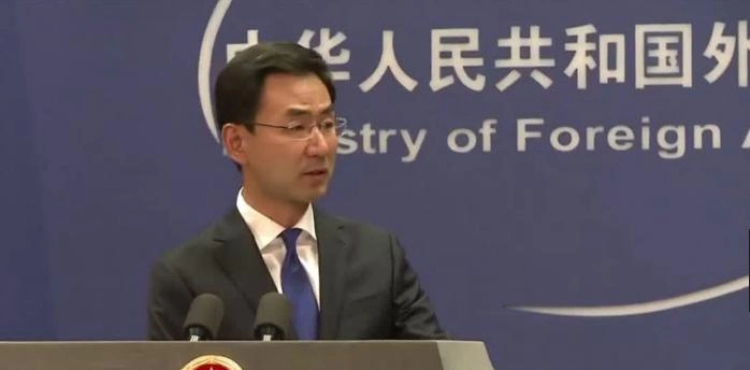China announced on Monday it would impose an additional $ 60 billion in US goods duties from June 1, in response to Washington´s announcement to charge the bulk of China´s exports to the United States.
The Chinese position came after US President Donald Trump ordered Friday to increase tariffs on the rest of China´s imports, after Washington lifted tariffs on Chinese goods worth 200 billion dollars.
The latest round of talks between the United States and China ended without an agreement ending the trade dispute between the two largest economic powers.
In a statement issued by the Chinese government, Beijing announced it would charge between 5 and 25 percent on a number of US goods.
"The measures to increase tariffs are a response to US unilateralism and trade protectionism," the statement said. "The hope is that the United States will work with China to reach an agreement that is in the interest of the parties."
China, by its June 1 deadline for entry into force, has decided to set a deadline for an agreement with the United States.
The Nasdaq fell more than 3 percent, the Dow Jones lost 530 points or 2.3 percent and the S & P 500 fell 2.4 percent.
The trade dispute between the United States and China has raised concerns in world markets and observers have been unanimous in warning of its negative effects on global growth and the demand for commodities such as oil.
The Chinese position came after Trump warned Beijing on Monday to "respond" to US tariffs. "China should not respond - it will make things worse," the president wrote on Twitter.
"China will not succumb to outside pressure," Chinese Foreign Ministry spokesman Ging Shuang said at his regular press conference on Monday.
In addition to the increase in tariffs, China can take further action in response to the United States, since its imports from the United States are less than its own, limiting its ability to respond similarly to Washington.
"China may stop buying US energy and agricultural products and may reduce its orders from Boeing," Hu Chijin, editor-in-chief of China´s official newspaper Global Times, wrote on his Twitter account.
China has US $ 1.2 trillion in US Treasury bonds.
China has long stressed that it does not want to fight the US-led trade war, but "does not fear" it should and should do so "when necessary," the official CCTV news agency reported.
The two confirmed Boeing´s confidence that US-China trade talks would lead to an agreement.
"We are confident that the United States and China will continue the trade talks and reach an agreement that is in the interest of American and Chinese manufacturers and consumers," a company spokesman said in an e-mail to AFP.
The United States and China have confirmed that the talks will continue. On Friday, Chinese Vice Premier and Chief Negotiator Liu Hee said the upcoming talks would be held in the Chinese capital without specifying any date.
The United States has increased by 10 percent its customs duties on Chinese goods worth 200 billion dollars, in a position responded by Beijing with a 5 to 10 percent increase in tariffs on more than five thousand varieties of US goods.
President Trump may meet with his Chinese counterpart next month on the sidelines of the G-20 summit to discuss the differences in the trade file, the president´s economic adviser Larry Cardello said. No date has been set for new talks.
"The communication between the two leaders is continuing," the Chinese foreign ministry spokesman said, but did not mention a possible meeting.
China has so far imposed customs duties on US goods worth $ 110 billion in response to Washington´s increase in its tariffs on Chinese goods.
Last summer, Trump imposed a 25 percent tariff increase on Chinese goods worth 50 billion dollars.
Last year Trump launched a trade war with China amid China´s accusation of unfair trade practices.
The United States is pressing China to change its intellectual property protection policies, huge subsidies to government-owned companies and reduce the large trade deficit.
Since last year, China and the United States have imposed reciprocal customs duties on goods worth hundreds of billions of dollars, which have negatively affected US agricultural exports and industrial sectors in both countries.












